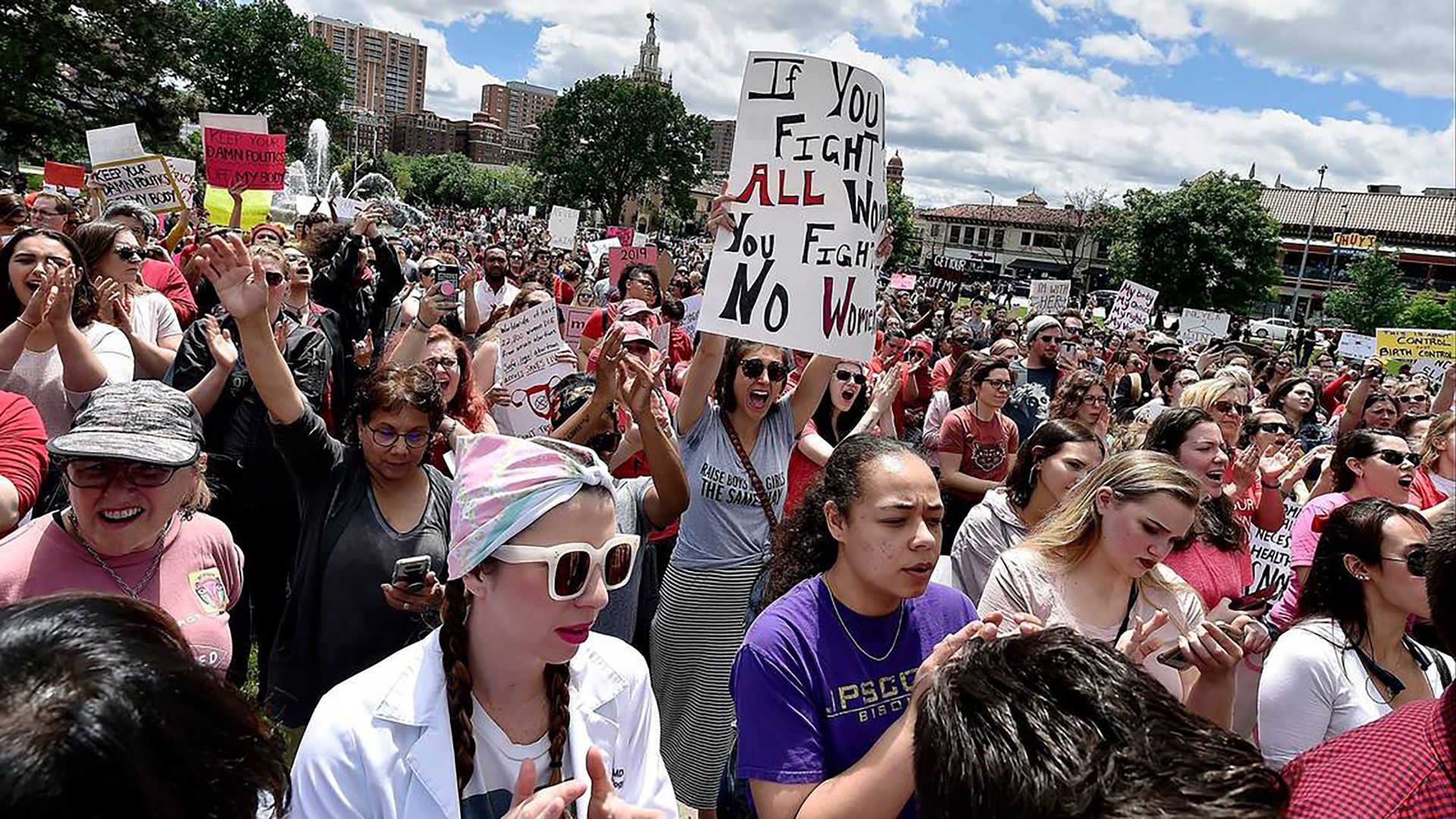Jan 21, 2023 - Health
Religious leaders file lawsuit challenging Missouri’s abortion ban
Add Axios as your preferred source to
see more of our stories on Google.

Several hundred protesters march in 2019 in response to the near-total abortion ban passed by Missouri legislators. Phtoto: Jill Toyoshiba/Kansas City Star/Tribune News Service via Getty Images
